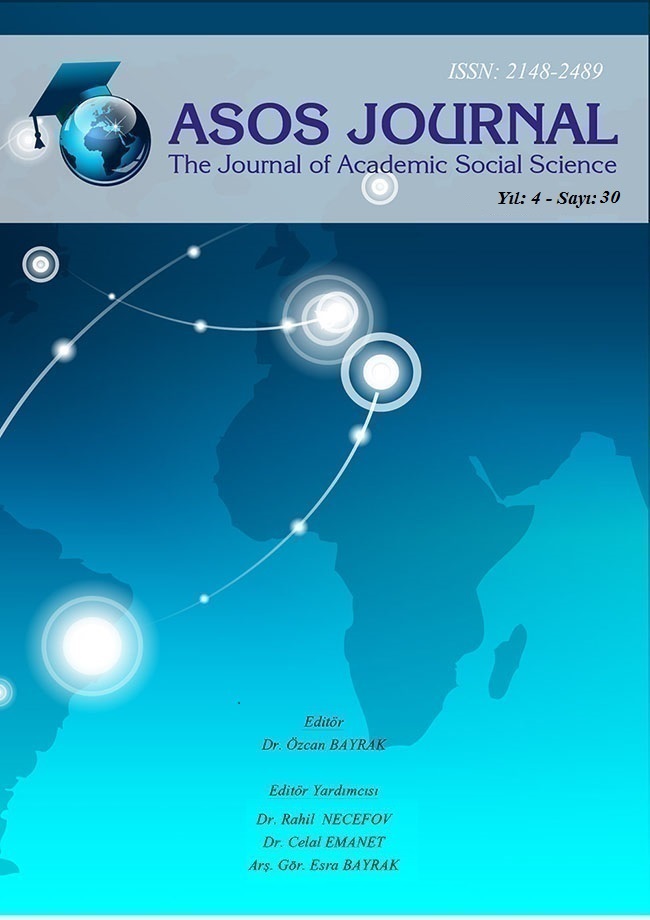Author :
Abstract
Bu araştırmanın amacı “mikro öğretim”in 8. sınıf öğrencilerinin Türkçe konuşma beceri ve kaygılarına etkisini belirlemektir. Nicel araştırma metodolojisinin uygulandığı araştırmada ön-son test kontrol gruplu deneysel desen kullanılmıştır. Araştırmanın çalışma gruplarını 2015-2016 eğitim-öğretim yılı güz döneminde Van Merkez İpekyolu İlçesi’nde eğitim-öğretim faaliyetini sürdüren Şehit Kemal Görgülü Ortaokulu’nda öğrenim otuz üç 8. sınıf öğrencisi (16 öğrenci deney grubu, 17 öğrenci kontrol grubu) oluşturmuştur. Araştırmada şu sonuçlara ulaşılmıştır: Uygulamalar sonunda, deney grubunda uygulanan mikro öğretimin kontrol grubunda uygulanan Türkçe Öğretim Programı etkinliklerine nazaran öğrencilerin Türkçe konuşma becerisi başarısı ve Türkçe konuşma kaygısı üzerinde çok daha etkili olduğu sonucuna ulaşılmıştır. Bu sonuçlar, mikro öğretimin öğrencilerin konuşma becerilerinin geliştirilmesi ve konuşma kaygılarının düşürülmesi çalışmalarında uygulanması gerektiğini ortaya koymaktadır.
Keywords
Abstract
The objective of the present study was to determine the effect of “microinstruction” on Turkish verbal skills and anxieties of 8th grade students. In the study where quantitative research methodology was used, pretest-posttest experimental design with control group was utilized. Study group included thirty-three (16 in study, 17 in control group) 8th grade students attending Van Central İpekyolu township Şehit Kemal Görgülü Middle School in 2015-2016 academic year. Data analysis was conducted with parametric t-test statistics. The findings obtained in the study were as follows: Applications demonstrated that microinstruction implemented in the study group was more effective on students’ Turkish verbal skill achievements and Turkish speech anxiety when compared to the Turkish curriculum activities applied in the control group. These findings established that microinstruction should be used in the studies that aim to improve verbal skills and to reduce Turkish speech anxieties of the





